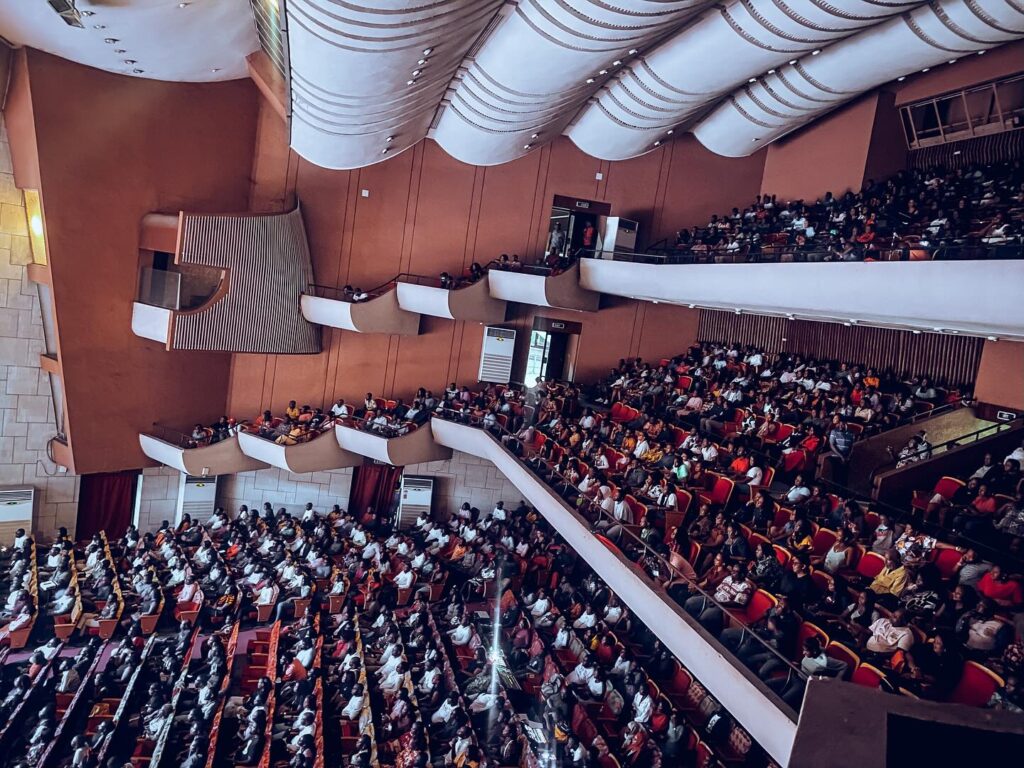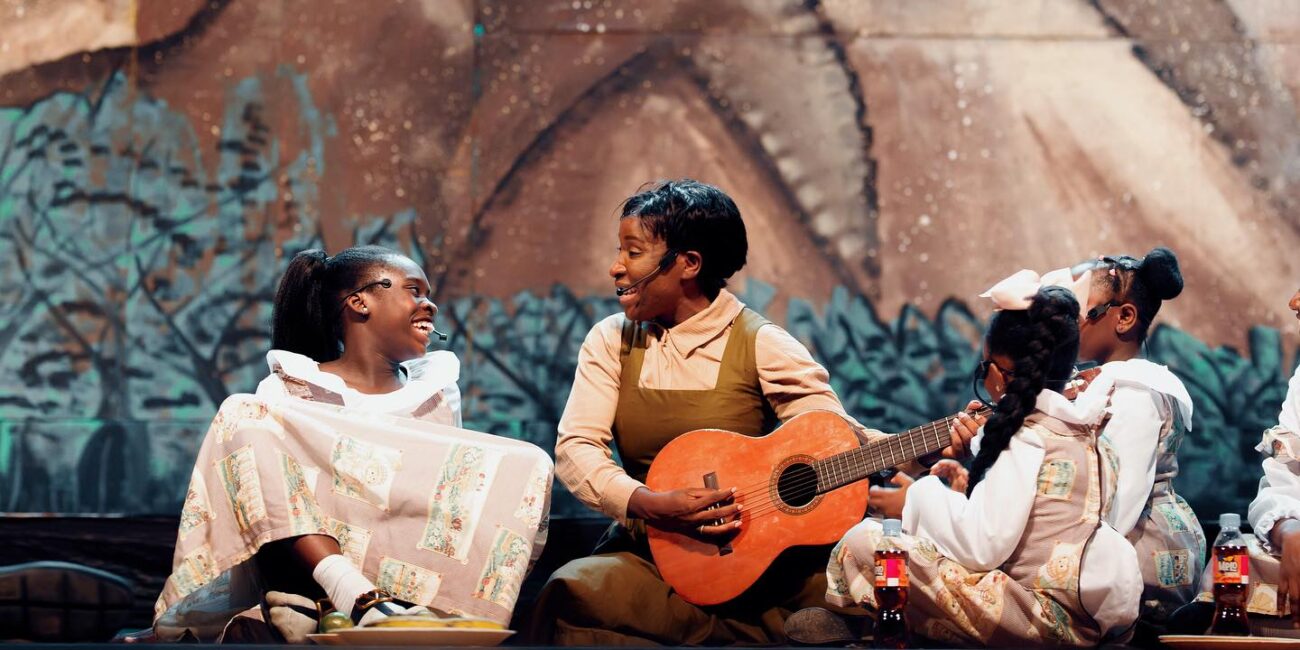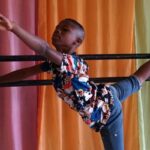Ghana’s theatre is in the throes of a crisis of identity, intimately tied to the dilapidation of the National Theatre—an emblematic structure gifted by the Chinese government. This crisis is palpable in the grievances of revered figures such as Pastor Mensah Otabil and musician Kojo Antwi, who raised concerns about the theatre’s physical decay. Around the same time, the theatre staff staged protests against their own management.
Despite these challenges, the Christmas season witnessed a surge in audience attendance at the National Theatre, with plays like Ola Rotimi’s “The Gods Are Not to Blame” and the musical, “The Second Coming of Kwame Nkrumah” drawing large crowds. Productions by popular producer Ebo Whyte of Roverman Productions and comedic shows like “Caught in the Middle,” featuring comedians OB Amponsah, Pararan, Clemento Suarez, Shegelabobor, Khemikal, Teekay, Putogo, and Okokobioko, added to the festive atmosphere.
However, the success of the Christmas theatre season masks the underlying issue that a significant portion of Ghanaians cannot afford theatre ticket fees. Moreover, there is growing concern that the predominantly Western conception of theatre offered in the heart of Ghana’s capital may not resonate with the local audience and that the government is not investing adequately in the arts.

The crisis of identity in Ghana’s theatre is rooted in the question posed since independence by Pan-African artists such as Efua Sutherland, Ama Atta Aidoo, Mohammed ben Abdallah and Korkor Amarteifio. What is the role of theatre arts in our efforts to decolonize our culture and how can we grow theatre and art in general as a source of wealth with a value chain from primary school to national and global markets?
These visionaries sought radical, creative answers to harness art to resolve the marginalization of Africa and attempted erasure of the African collective memory brought about by slavery, colonialism, and neo-colonialism. Theatre, for them, became a tool not only for healing from trauma but also a new source of economic growth pole, one that required government investment.
During the Christmas festivities, the National Theatre management celebrated the life and work of Dr. Ben Abdallah, the founder of the National Theatre. He fervently believed that true African theatre could unfold wherever it was convenient for people to witness it. In his early years, he established the Legon Road Theatre, touring secondary schools with plays like “The Fall,” a pidgin English adaptation of the book of Genesis by Nigerian writer Obotunde Ijimere.
Dr. Ben Abdallah later founded the Abibigromma – (African Players) theatre group at the University of Ghana, School of Performing Arts, aiming to create an Africa-centered theatre art that resonated with all classes. Korkor Amarteifio, as Programme Director of the National Theatre in the ’90s, championed the revival of the Concert Party as a comedic genre of African theatre, encouraging performances in popular public venues like markets and transport hubs.
Today, the Headybrains Theatre company in Takoradi, celebrating its 5th anniversary in 2023, exemplifies the fusion of African and Western art forms. Their philosophy of taking plays to the people in venues such as church halls, echoes the influence of earlier Pan-Africanists. For instance, the play “No Syringe Attached” was performed at the Christian Restoration Ministry International last year.
Yet, the contemporary challenge, for Ghana’s artists, lies in forging a practice of African-centered theatre that not only addresses and heals the wounds of the past but also evolves in new directions that reflect the aspirations of the Ghanaian people. Young Ghanaian artists are currently grappling with this movement, as emphasized by playwright, Oswald d’Atl Entertainer who in a recent social media post stated that: “We must be deliberate about understanding the concept of theatre and accept that it is a culture and not a one-off event.â€
By Ruby Ofori



